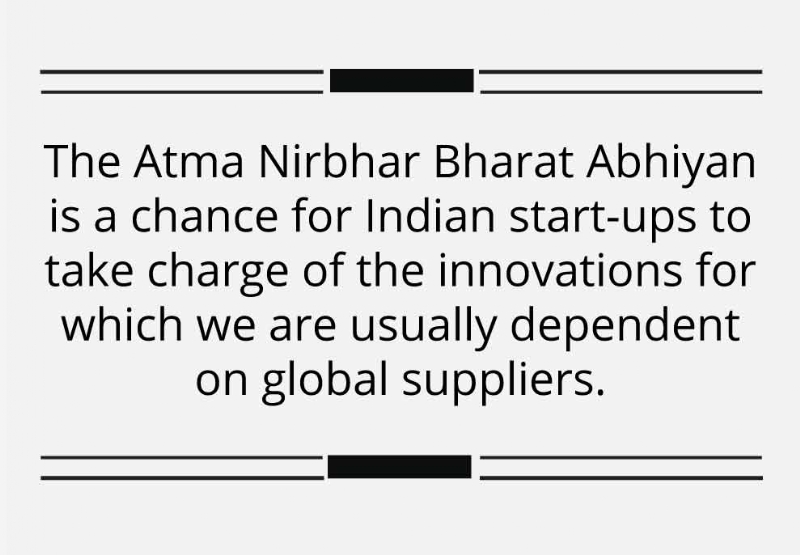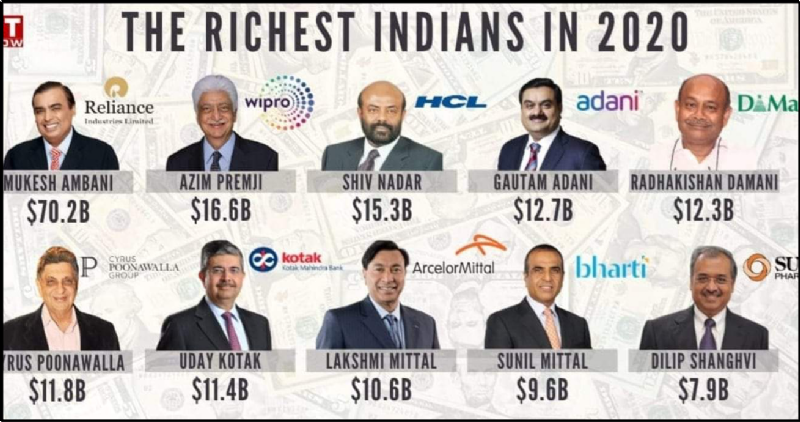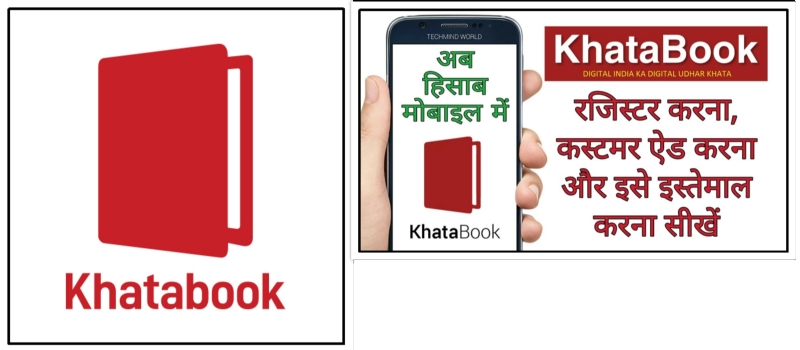Atmanirbhar Bharat
19 Jul 2020 14:27:24

A few days back, I came across the below image published by one of the leading financial news agencies in India.

Pic courtesy ET Now
After having a good look at it, did you notice a common thing in them? All of them are job givers and not job seekers. Most of them have set up their own businesses, not inherited from their ancestors and have earned the riches because of sheer hard work and business acumen.
All of us yearn to be like them but most miserably fail at it. The primary reason being our emotions of 'fear and greed'.
Are we horses with blinkers on our eyes programmed to work like machines for the security of earning a fixed monthly paycheck? Well, Covid has made it amply clear that that monthly paycheck is definitely not as secure as it seemed to be.
So, what do we do? Do we let our lives be ruled by Covid or be at the mercy of our employers or learn to live with pay cuts and job losses? Or, do we take control of our lives?
Obviously, the latter!
Isn't it high time we become conscious of our emotions and learn to use the grey matter between our ears? It is never late to start giving priority to our brains over the emotions of fear and greed in decisions of our lives. Normally what we follow is the other way round.
Here, I put down two examples of how firm determination and a viable idea has led two young lads to become successful businessmen. In a few years, they will surely feature in a list of may be most innovative and socially successful entrepreneurs.
1. An Undergrad's Successful Business Idea- Generic Aadhaar:

A few days ago, a photo of Shri. Ratan Tata with a young boy was published in several newspapers. The boy was Arjun Deshpande, an 18-year-old from Thane. From the age of sixteen, he started his own company called Generic Aadhaar.
Generic Aadhaar sells generic drugs directly from WHO certified manufacturers to chemists. This helps in reducing the middlemen commission thereby lowering the price of the drugs.
Despite the government's efforts to keep the prices of essential medicines at a reasonable level through DPCO (Drug Price Control Order), about 80% of the medicines sold in India are out of price control.
With focus on affordability and availability his start up has achieved annual revenues of Rs 6 crores. It aims to reach a figure of Rs 200 crore in the next three years.
So far, 30 drug retailers in Mumbai, Pune, Bangalore, and Odisha have become part of the Generic Aadhaar chain. It plans to expand its business to 1000 pharmacies soon on a franchise-based model in states like Gujarat, Andhra Pradesh, Goa and Delhi.
When an accomplished businessman like Ratan Tata extends his support to your company, there leaves no room for doubt that you have a bright and right business idea.
2. Khatabook:

Vaibhav Kalpe's father used to run an electrical shop in a village called Degloor in Nanded district. On seeing the trouble his father faced while recovering money from customers carrying goods on credit, Vaibhav learned online coding and developed a simple Android app called Khatabook. By 2018, it had more than 60,000 subscribers on the Google Play Store. Vaibhav had decided to look after the family business after his father's retirement.
But his app on the Play Store had caught the attention of all the right people. A Venture Capital firm had approached Vaibhav about a possible investment in Khatabook. Ravish Naresh, co-founder of Housing.com, was also in touch with Vaibhav. He was running a start-up called Kyte.ai with his college friends. After much effort, Vaibhav agreed to meet him. Ravish managed to convince Vaibhav to join his team. The Kyte team made some changes to the Khatabook app and relaunched it on the Play Store and I-store.
The Kyte team was hoping that the app would reach more people following the new modifications and word of mouth publicity of existing 60,000 users. But none of them had any idea, what the future had in store for them.
Today, Khatabook app has over 80 lakh users. The app records an average of over 30,000 crore transactions per month. It is now used in India as well as in neighboring countries. The app is preferred by many small shopkeepers as it can be used in 11 Indian languages besides English.
The app had raised USD 25 million last year from venture capital companies such as Sequoia India (India's largest venture capital company), Tencent Holdings, China, and others. This Chinese investment has brought Khatabook in the eye of storm against the backdrop of the current Indo-China tensions. In March 2020, Khatabook raised USD 60 million with the help of the B Capital Group. That is when former Indian cricket captain Mahendra Singh Dhoni also invested an undisclosed amount in this start-up.
In these days of COVID-19, when malls and supermarkets are closed, general grocery stores have helped millions of people get their daily supplies. The Facebook Jio agreement will extend Jio Mart through WhatsApp (a company owned by Facebook) to such small shopkeepers.
In the future, technology will help these small grocery stores compete with multinational supermarkets. How this startup develops in the future is of course a matter of great curiosity.
One thing is crystal clear, by using one's observation and entrepreneurial skills in finding a right need gap in the market is the first step to building a successful business. Well, the idea is simply not creating mountains of money, but being
HAPPY IN OUR OWN CREATION.
Let us all make efforts to make India truly Atmanirbhar!

Shephalika Gokhale
Besides working as a Trainer for banks and corporates in areas of general management, investor awareness programs, customer service etc., Shephalika has also worked as Manager (Customer service and Retail Operations) for more than 6 years with IDBI Bank. She also has been teaching at various management institutes and commerce colleges in Pune for the past 11 years.
While pursuing her PhD, she concluded that knowledge about money matters in simple, local language which is easily understandable is lacking. The level of financial awareness about investments and savings is worrisome, not just with adults but also in the young earning group. Managing one’s corpus needs a holistic approach keeping an eye on the various environmental factors. It is this need and her passion to educate people on matters of personal finance, led her to start sharing tips and writing for the layman. Her simple writing is hugely popular and widely read.